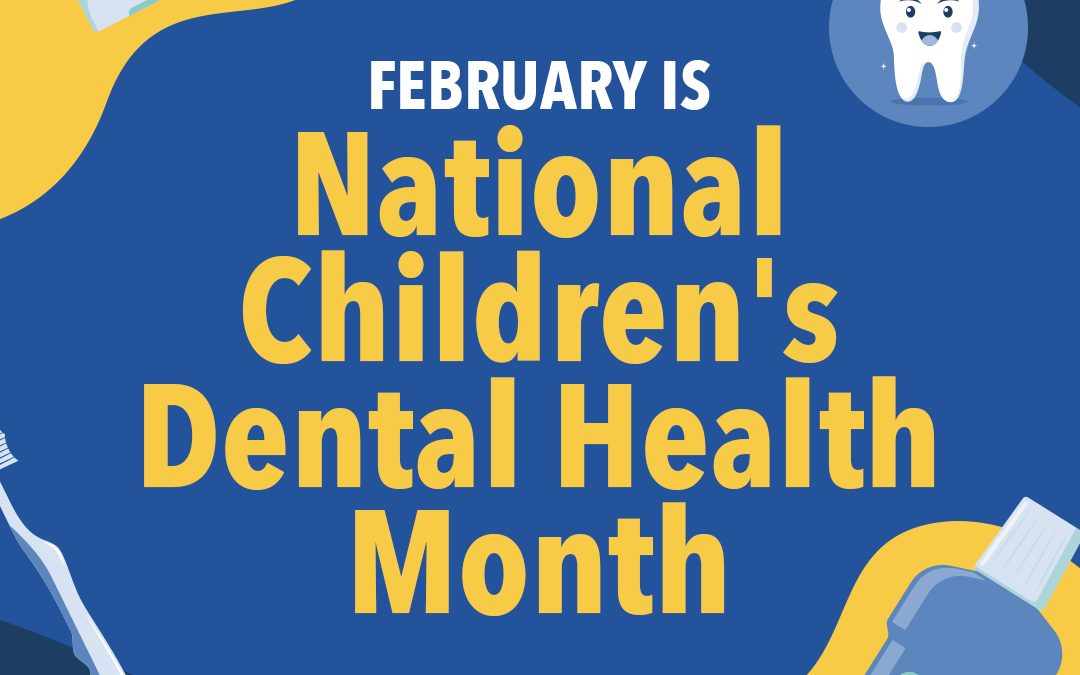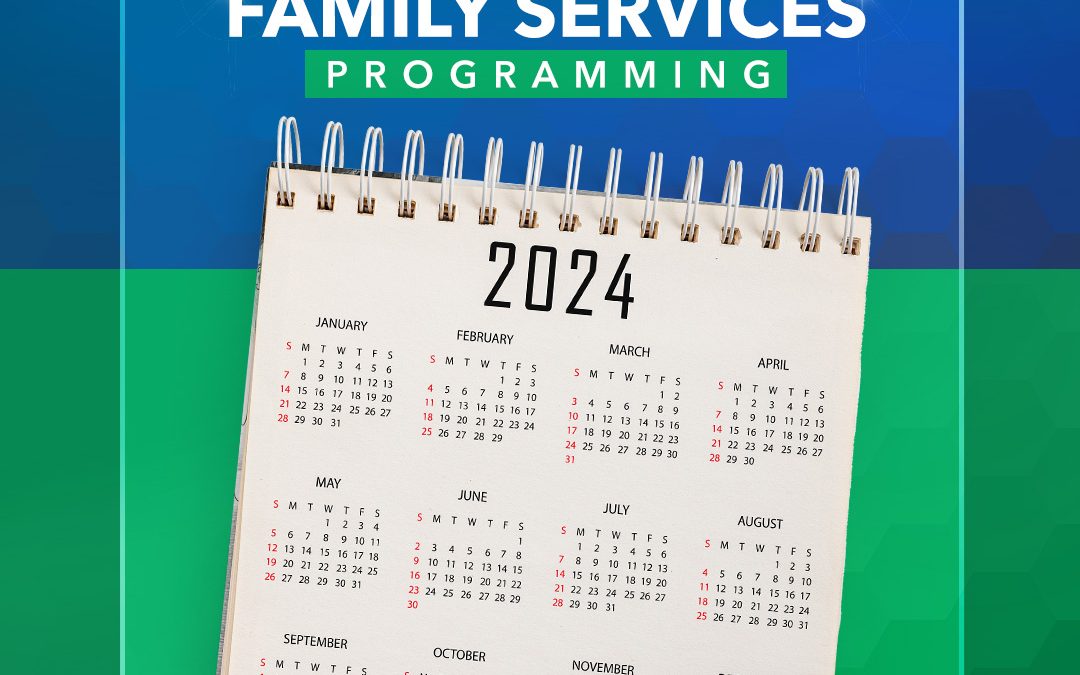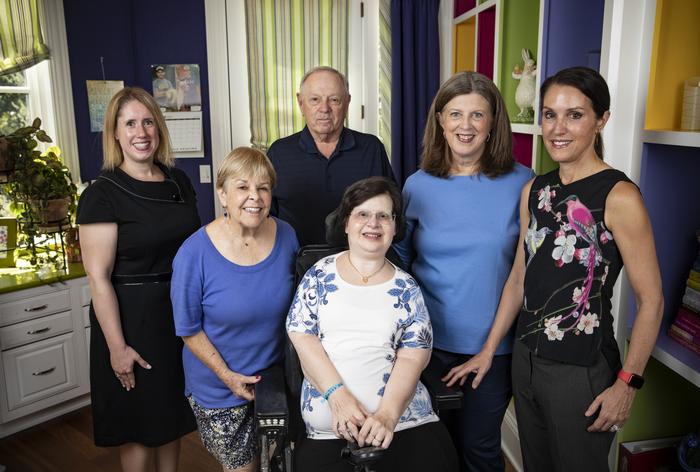
by Megha Shree | Feb 13, 2024 | News
Getting your child to brush their teeth well and regularly can be a challenge for any parent. For children with FOP, it can be especially difficult to maintain oral hygiene but it’s critical to managing their increased vulnerability to oral diseases. Preventing cavities and other oral health issues is key to preventing FOP flare-ups in the jaw which can limit jaw mobility and make everyday preventive care a challenge.
In an IFOPA webinar on oral health, FOP dental expert Dr. Clive Friedman explained the relationship between oral health, gut health, the immune system, breathing, communication, self-esteem and quality of life. He also shared age-appropriate recommendations for oral hygiene.
As National Children’s Dental Health Month, February is the perfect time to assess your child’s oral hygiene and implement new routines. Read Clive’s advice below and find more FOP-specific resources for managing your child’s oral health.
How Oral Health Impacts the Entire Body
A healthy mouth is critical to a healthy body. While a few missed brushing or flossing sessions might seem harmless, the build-up of harmful bacteria on teeth can lead to more serious health conditions. For individuals living with FOP, it’s especially important to understand the relationship between oral health and the rest of the body.
Oral disease that is chronic and left untreated may weaken the immune system over time, leaving the body vulnerable to other illnesses. Inflammation in the mouth can also lead to systemic inflammation. Here’s how oral health can impact other systems of the body.
Breathing and Respiratory System: From the posture of the head and neck affecting breathing to swallowing patterns increasing risk of inflammation, oral health and the respiratory system are closely linked.
Cardiovascular System: Poor dental health can increase the risk of a bacterial infection in the bloodstream. Additionally, some research suggests that oral bacteria might be linked with heart disease, clogged arteries and stroke.
Communication: Oral health directly affects your ability to speak and endurance levels in speaking for longer periods of time. Poor oral health can also cause painful ulcers, limiting your desire to speak.
Self-Esteem and Quality of Life: Poor oral health can also impact emotional health, negatively affecting self-esteem and interfering with activities you enjoy. Ankylosis of the jaw impacts the desire and enjoyment of foods, influencing whether you want to attend social events involving food.
Age-Specific Oral Hygiene Recommendations
We have more than 700 bacteria in our mouth. These bacteria collect to form a biofilm, which is necessary for our oral health but can also become a breeding ground for disease if left untreated. Toothpaste disrupts this biofilm, keeping bacteria from growing and sticking to teeth. While brushing teeth with toothpaste is essential for cleaning the outside of our teeth, floss is crucial to cleaning between teeth.
Consistent oral hygiene is critical at every age and each stage of life requires different tools and recommended practices. Clive suggests implementing the following routines, but advises consulting your dental professional for personalized medical advice.
Infants to 3 Years of Age
- Visit a dentist by one year at the latest
- Clean gums with wet gauze after each breast or bottle-feeding
- Brush teeth without toothpaste or use a grain-sized amount of non-fluoride toothpaste without sweeteners. Fluoride toothpaste is only needed if you live where water is not fluoridated or if recommended by a dentist.
- Brush teeth for two minutes at least twice per day and floss daily
- Minimize soft, sugary foods like yogurt which may contain excess sugar
- Fluoride varnish is suggested twice per year for children at high risk for oral disease
3 to 5 Years of Age
- Visit the dentist every three months, if possible
- If your child can spit toothpaste without swallowing, start using a pea-sized amount of fluoride toothpaste (stick with a grain-sized amount if they’re swallowing)
- Keep helping your child brush their teeth for two minutes at least twice a day and floss daily
- Maintain a healthy, low-sugar diet with crunchy snacks to strengthen gums
- Fluoride varnish is suggested twice per year for children at high risk for oral disease
Over 5 Years of Age
- Continue general guidelines of brushing for two minutes, at least twice per day, and flossing daily. Most children need help to floss effectively until 10 or 11 years of age. If using floss aids, keep them clean after use on each tooth to avoid mouth contamination.
- If your child is at risk for oral disease, a dental professional may recommend a high-dose fluoride toothpaste or rinse.
- Continue to provide a diet low in sugar, choosing crunchy, healthy snacks to strengthen gums. Additionally, choose products containing xylitol (such as xylitol mints or gum) which is a healthier, natural sugar substitute made from birch trees that can help prevent tooth decay.
- Monitor nasal or mouth breathing, snoring and teeth grinding. These put your child at increased risk for oral disease and require a visit to a dental specialist.
- Care should be taken when opening your child’s mouth to prevent overstretching of the jaw muscles which could trigger FOP flare-ups. Visit the dentist every three months if possible.
- Saliva testing is highly recommended for patients with FOP. If a patient has inadequate saliva flow, habitual rinsing with water after eating is helpful. Saliva substitutes may also be helpful, such as MI Paste, gum containing xylitol and/or rinses.
Adults with Ankylosis of the Jaw
- Visit a dental professional every three months, if possible
- Continue brushing the cheek side surfaces of the teeth that you can reach
- Use a pea-sized amount of standard fluoride toothpaste (1000 ppm). If you are at risk for oral disease, a dental professional may recommend high-dose fluoride toothpaste (5000 ppm).
- Brush two minutes twice per day and floss daily. Floss aids will be necessary to dislodge food from between teeth and help clean hard-to-reach areas.
- Fluoride rinses are necessary to clean the tongue and tongue-side of the teeth when the jaw is closed. Your dental professional may recommend a high-dose fluoride rinse if you are at risk for oral disease or are developing cavities and/or lesions.

by Megha Shree | Feb 13, 2024 | News
FOP impacts the entire family. That’s why we’re passionate about offering a wide variety of resources for families and supporting you through every unique stage of life with FOP.
We’re grateful for each of you who participated in our community in 2023 and look forward to continuing to see you in 2024. We hope you’ll join us in one of the following continued or new programs.
FOP Adult Peer Support Group
Meet monthly with fellow English-speaking adults with FOP. Moderated by counseling psychologist Dr. Al Freedman, this group offers a safe space to connect, share challenges, ask questions, and process with individuals who can relate to your life.
“It can be difficult to talk about living with FOP,” said Kyle, a member of the support group. “One of the biggest fears is being misunderstood or not feeling like you’re connecting with who you’re talking to because they haven’t been in your shoes. But in the monthly Adult Peer Support Group meetings, there’s never been a topic brought up by anyone where there wasn’t a connection made by at least two peers offering support and advice.
FOP is a mental and physical battle every day, but since being a part of this peer group meeting, I feel like mentally dealing with FOP has improved because of having that interaction where people understand.”
FOP Caregiver Peer Support Group
Caring for a loved one with FOP is a unique experience that many people can’t relate to. You deserve a community that understands your life and encourages you through the highs and lows. In our monthly peer support group, connect with fellow caregivers to get questions answered, share your experience, and support each other as you support your loved ones.
“At the Dallas Family Gathering, my husband and I attended the Parents’ Support group led by Dr. Al Freedman. It was a profound experience to be in a room full of parents who completely know what it is like to parent a child with FOP. We had a very candid discussion about how it affects us all differently, especially between mothers and fathers, and even stepparents. We were in different ages and stages with our children, but it was very validating to hear all the different stories and responses, and all without judgment. Dr. Freeman was the perfect moderator for the group, giving us plenty of time to share, reflect and guide us through all the difficult emotions. Even those that did not share too much got a lot just by listening as it’s nice to know you’re not alone in the experience. I am excited about the chance to join the group on a regular basis!”
Tiffanie Williams
Mom to Daniel Williams (17)
The Sibling Experience: Growing Up As a Glass Child
After the success of programming specifically for siblings of individuals with FOP, we’re expanding our resources for siblings in 2024. This year, we’re excited to host an interactive Q&A discussion on March 10 between TedTalk speaker Alicia Maples (Recognizing Glass Children) and Sharon Neumann (adult FOP sibling and advanced grief recovery specialist) who will discuss what it means to be a “Glass Child” and how parents and glass children can come together to connect over the topic. They’ll also answer questions from participants live.
We look forward to welcoming parents, caregivers and adult siblings to this informative Q&A discussion!
Childhood Trauma Series
For many children with FOP and their siblings, trauma is an unfortunate, and at times unavoidable, part of childhood. Whether that trauma is the result of a medical experience, a loss of movement or occurs by witnessing or interacting with a medically compromised sibling, it can have lasting effects on the individual. This two-part series will focus on the impact and stages of healing for children who experience trauma.
Save the Date for April 15 and 29!
New Handouts
This year, we are planning to publish four new resources to help you navigate life with FOP.
- Explaining FOP to Children
- Immunizations and FOP
- Ear Nose & Throat (ENT) Care and FOP
- Skin Care and FOP
Resilient Living Program: Connecting and Empowering the Body and Mind
Our Resilient Living Program equips families with the skills and support they need to navigate life with FOP. This year, join members of the FOP community and outside experts as we explore the interconnectedness of the human body and how our breath, circulation, diet, sleep and sense of purpose can all impact our daily well-being and play a larger role in each individual’s health journey.
In this series of sessions, Connecting and Empowering the Body and Mind, we’ll be diving into these individual topics to learn how awareness and small steps can create a big change.
Watch for more information.
2024 Advocacy Series: Building Your Support Network
A multi-faceted network of specialists and resource experts is crucial to living life to the fullest. But it can be overwhelming to find and build the right support team. At the 2023 Family Gathering, the Wray family spoke about the importance of having a network of friends, specialists and advocates to navigate life with FOP.
Watch their story to prepare for our 2024 Advocacy Series on building support networks. Throughout the year, you’ll get practical advice from outside experts and FOP community members on finding the support you need to live a full, meaningful life.
Advocacy Series community panels and webinars will be hosted on Zoom video conferencing and simultaneous translation will be provided in a variety of languages.
2024 FOP Family Gathering
We are excited to announce that the 2024 FOP Family Gathering will be held in Denver, Colorado November 7-9. The Family Gathering provides opportunities to meet others in the country living and coping with FOP and to have their questions answered by leading experts in the field. The whole family is invited, and onsite childcare and children’s activities will be provided.
The Family Gathering is held in a different US city each year and we are excited to bring it to Denver, Colorado for the first time! To lessen the burden of attending the Family Gathering, the IFOPA has developed a travel and lodging assistance program. The application window will open on March 1. The IFOPA will be sharing a preliminary agenda, airport transportation information and registration details in the coming months!

by Megha Shree | Nov 30, 2023 | News
On September 28, 2023, Regeneron published the results of their Phase 2 LUMINA-1 Clinical Trial of the drug garetosmab in Nature Medicine, a peer-reviewed publication.
Regeneron also published clinical pharmacology results from the LUMINA-1 Trial in the Journal of Clinical Pharmacology.
Also on September 28, Vanderbilt University Medical Center, one of the sites for the LUMINA-1 Trial, issued this press release announcing the peer-reviewed publication of Phase 2 results and sharing the story of Sharon Kantanie, a trial participant.
The IFOPA is grateful to the 44 individuals with FOP who enrolled in the LUMINA-1 Phase 2 Trial, including the five community members who passed during the open-label period. The willingness of families to participate in clinical trial research is the only way we will ever learn if drugs are safe and effective treatments for FOP. We also appreciate the work of the trial investigators and their commitment to FOP families. We are also grateful to Regeneron for their commitment to the FOP community and the development of garetosmab.
The investigation of garetosmab as a treatment for FOP has now moved forward in the Phase 3 OPTIMA trial. You can learn more at ifopa.org/regn2477.

by Megha Shree | Nov 30, 2023 | Uncategorized
From a readership of 11 in 1988 to more than 2,000 in 2023, the IFOPA newsletter has evolved to inform and connect friends across the world
Together with her sister-in-law, Anne, and fellow IFOPA founding member, Nancy Sando, Jeannie Peeper published the first edition of the FOP Connection in 1988. Back then, it looked quite a bit different from the version you’re reading today.
“It was very basic,” said Jeannie. “It was done on a typewriter, copied and mailed out.”
Jeannie got the idea to bring people living with FOP together after Dr. Michael Zasloff gave her the names of 18 other people with FOP.
“I wanted to help end the isolation many of us felt,” she said.
Jeannie wrote to the others to gather details like names, birthdays and hobbies, and 11 of the 18 responded. Jeannie invited those that wrote back to be Founding Members of the IFOPA. Information they sent back helped create the first newsletter.
“It was a way to share everyone’s information, connect and build friendships,” she said.
In 2010, FOP Connection moved online.
Thirty-five years later, the FOP Connection still functions in a similar manner, just on a massively different scale. A readership of 11 in 1988 has exploded to more than 2,000 in 2023.
Just like our organization, it’s remarkable to see how the newsletter has evolved to serve a growing audience yet remained committed to providing a personal connection and welcoming community for everyone.
FOP Connection provides people across the world with the latest research and clinical trial news, information about IFOPA programming, community updates, support and more to better navigate life with FOP.
It’s been so special to see FOP Connection blossom into what it is today.
Thank you, Jeannie, for creating such a wonderful way for our community to connect!

by Megha Shree | Nov 30, 2023 | Uncategorized
L.I.F.E. Award Grant makes it easier for professional with FOP to work from home
Kathleen Degenhardt works from home. She also has FOP, which makes it difficult for her to perform some tasks. She learned about the Harold & Elaine Kaplan Quality of L.I.F.E. Award program while reading the IFOPA monthly newsletter and applied.
The program provides grants to people living with FOP. Recipients can use the assistance to purchase tools and make improvements to help them perform daily tasks. Whether that be in the form of home modifications or comfort, school, workplace, communication or mobility aids is up to them. Kathleen used it to purchase an adjustable-height desk.
“It’s made working from home easier because instead of using books to make my keyboard the correct height, I’m able to press a button to do it,” she said. “As my body changes, I can easily adjust it so I can continue to work.”
Now that she can sit straighter and be more comfortable while working, Kathleen said that many tasks have become easier and are more enjoyable. She is grateful for the improvement and hopes the program can help others.
“As members of the FOP community, we live challenging lives and struggle to do everyday tasks,” she said. “Sometimes simple things can make such a big difference and make life easier.”
As the IFOPA continues to expand and reach new communities around the world, demand for this type of assistance is growing. For those looking to help people living with FOP, supporting the Quality of L.I.F.E. Awards is one of the best ways to have a direct impact.
“Your support of the program means a lot and provides all sorts of items to FOP members,” Kathleen said. “This kind of immediate, personalized assistance has been life-changing.”
Learn more about the L.I.F.E. Award program or donate to provide direct support to someone living with FOP.





